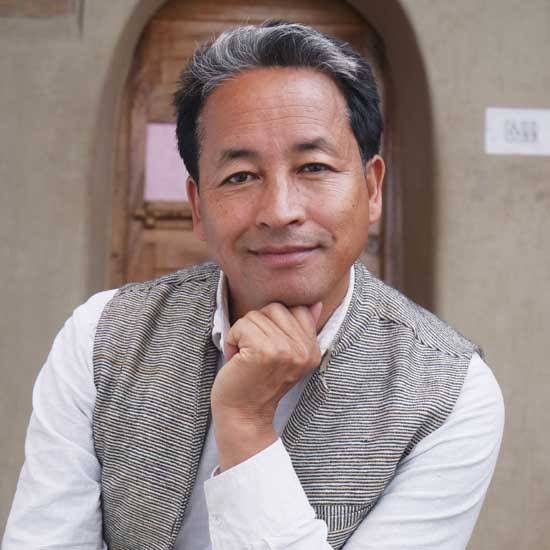
Table of Contents
elhi News Live Updates: Delhi Police to Release Ladakh Activist Sonam Wangchuk After Detention
In a significant turn of events, the Delhi Police have announced that they will be releasing Sonam Wangchuk, a prominent activist and education reformer from Ladakh, after his recent detention. The news has sparked widespread discussions regarding Wangchuk’s activism, the issues concerning Ladakh, and the implications of his detention on the region’s socio-political landscape.
Background on Sonam Wangchuk
Sonam Wangchuk is renowned for his innovative work in sustainable development and education, particularly in the cold desert region of Ladakh. An engineer by profession and the founder of the Himalayan Institute of Alternatives Ladakh (HIAL), Wangchuk has been instrumental in promoting alternative education and eco-friendly practices in the region. He is also widely recognized for his role in the movement for the preservation of Ladakhi culture and environment, often advocating for policies that benefit the local community and promote ecological sustainability.
Wangchuk rose to national prominence during the 2019 protests advocating for the preservation of Ladakh’s unique culture and environment amid the proposed changes in its administrative status. He has been vocal about the need for development that aligns with the local community’s aspirations rather than imposing external solutions that may threaten their way of life.
Details of the Detention
Sonam Wangchuk was detained earlier this week during a protest organized in New Delhi to voice concerns over the ecological degradation and social challenges facing Ladakh. The protest aimed to highlight the urgent need for attention from the government regarding the issues of water scarcity, climate change, and the preservation of Ladakhi culture and identity. His detention drew sharp criticism from various quarters, including fellow activists, politicians, and members of civil society, who viewed it as an attempt to stifle dissent and silence voices advocating for the rights of the Ladakhi people.
The Delhi Police initially justified the detention, citing concerns over public safety and the need to maintain order during the demonstration. However, as public outrage grew and calls for his release intensified, authorities reconsidered their stance.
Implications of Wangchuk’s Release
The decision to release Sonam Wangchuk is significant, reflecting the ongoing dialogue between the government and activists concerning the future of Ladakh. It raises several important questions:
- Freedom of Expression: Wangchuk’s detention and subsequent release underscore the critical importance of upholding freedom of expression in a democratic society. Activists play a vital role in advocating for marginalized communities, and their ability to voice concerns should be protected rather than suppressed.
- Focus on Ladakh’s Challenges: Wangchuk’s activism has brought attention to the pressing issues faced by Ladakh, such as environmental degradation, water scarcity, and the impact of rapid tourism development. His release may serve as a catalyst for renewed discussions on sustainable development strategies that prioritize the needs and voices of local communities.
- Government-Activist Relations: The incident may signal a need for the government to engage more constructively with activists and civil society organizations. It could foster a more collaborative approach to addressing the complex challenges facing Ladakh and similar regions.
- Youth Engagement: Wangchuk’s efforts to mobilize the youth of Ladakh have inspired a generation to take an active interest in their community’s future. His release is likely to reinvigorate youth engagement and activism in the region, encouraging more young people to advocate for sustainable and equitable development.
Community Reactions
The news of Wangchuk’s impending release has been met with widespread relief and celebration among his supporters and the Ladakhi community. Many view him as a champion for their rights and aspirations, and his return to activism is eagerly anticipated. Social media platforms have been buzzing with messages of solidarity, urging continued advocacy for the issues Wangchuk represents.
Various organizations have expressed their support for Wangchuk, emphasizing the need for collective action to address the challenges facing Ladakh. Activists and citizens alike are calling for more robust policies that prioritize environmental protection, cultural preservation, and sustainable development in the region.
Conclusion
Sonam Wangchuk’s release from detention marks a crucial moment for activism in Ladakh and highlights the ongoing struggles faced by local communities in the face of development pressures. As he resumes his work, the focus on Ladakh’s unique challenges is likely to intensify, with Wangchuk continuing to advocate for the rights of the Ladakhi people and the protection of their environment. The incident serves as a reminder of the power of activism in shaping societal narratives and the importance of fostering an inclusive dialogue between authorities and the communities they serve.
For more information visit : Sonam Wangchuk’s Instagram Account
